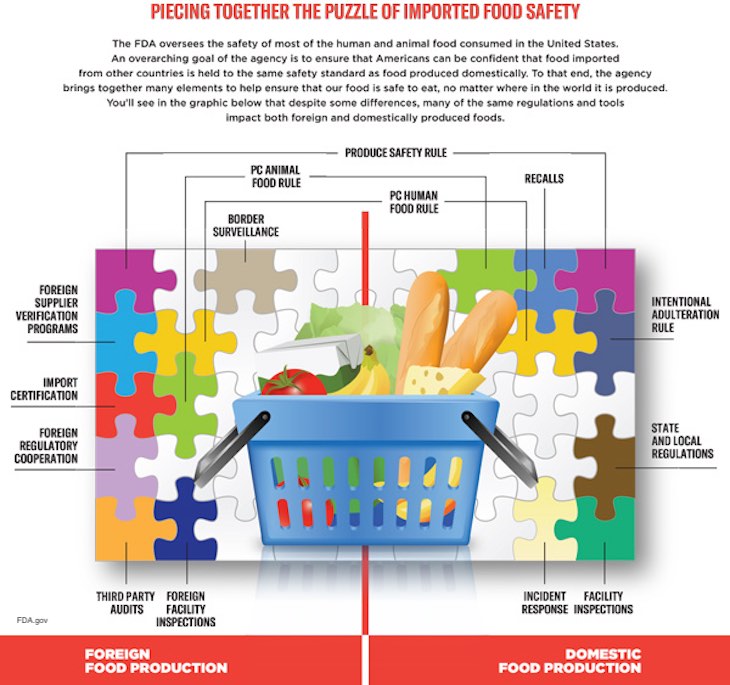The FDA’s Commissioner Dr. Scott Gottlieb and Deputy Commissioner Frank Yiannas are announcing a new strategy to modernizing government oversight of imported food. This country imports about 15% of its food supply from more than 200 countries or territories around the world. Other countries supply 32% of our fresh vegetables, 55% of fresh fruit, and 94% of our seafood.

And there have been quite a few food poisoning outbreaks linked to imported food in the past few years. Last year, a Salmonella Concord outbreak was linked to tahini imported from Israel. In 2017, a Salmonella outbreak linked to papayas imported from Mexico sickened at least 255 people with nine different strains of the pathogen. And in 2016, almost a thousand people were sickened across the country with Salmonella Poona infections linked to imported cucumbers. A study published in the CDC’s Emerging Infectious Diseases in 2017 found that outbreaks linked to imported foods are increasing.
The supply chain that imported foods travel is complex and complicated. One ingredient that is used in many different foods can contaminate thousands of pounds of food products that are shipped all over the country.
So the FDA is introducing a new imported food safety strategy to try to meet these challenges. The government wants top meet four goals: “preventing food safety problems in the foreign supply chain prior to entry into the U.S.; effectively detecting and refusing entry of unsafe foods at U.S. borders; responding quickly when the FDA learns of unsafe imported foods; and measuring our progress to ensure that our imported food safety program remains effective and efficient.”
First, any food that is imported into this country must meet U.S. standards for inspection. Importers must be verified, using the Foreign Supplier Verification Programs final rule.
At the border, FDA must enhance and refine its import screening and entry review processes. Only about 2% of the foods that come into this country are physically inspected. The government also wants to improve testing methodologies and maximize the benefit from state partners.
When an outbreak occurs, or if a food is found to be contaminated after import, the FDA must make sure their response is effective. Using information-sharing opportunities will help them prepare for unsafe imported food.
Finally, the agency wants to develop a comprehensive global inventory of food facilities and farms around the world and assess the oversight applied to those places.




